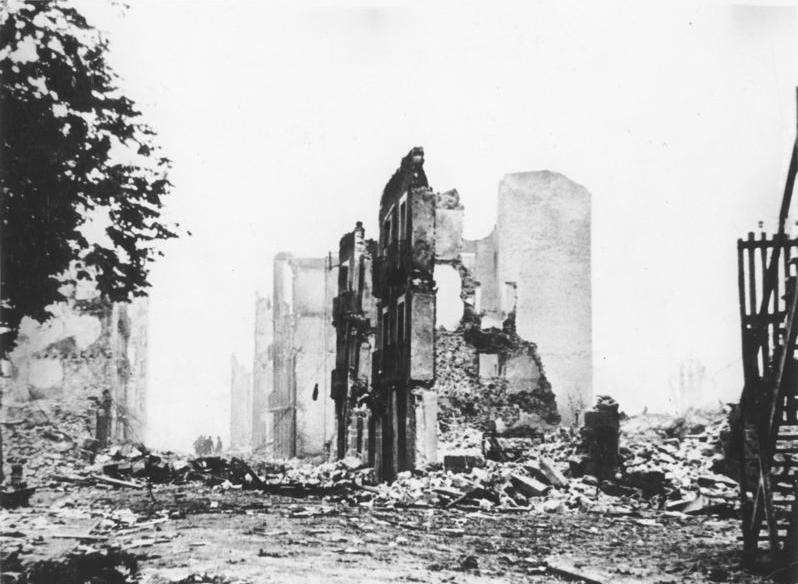By Anne Colamosca
Twenty-seven-year-old George Lowther Steer was in Toledo, Spain, covering the civil war for London’s Times in fall 1936 when he was abruptly expelled from the city. The Nationalist military staff had discovered Steer’s recently published Caesar in Abyssinia, a book attacking its Italian fascist supporters. Steer explained how, among other sadistic measures, Benito Mussolini’s forces had used poison gas against Ethiopians, at most armed with antique weapons from past resistance against Italian invasion in 1896.
Following his stint in Ethiopia, at the time known as Abyssinia, Steer had a sojourn in London, signing on as a freelancer with the Times to complete his book. He remained in that position in Spain, where he headed after the war broke out in July 1936. Before he even reached Toledo, General Francisco Franco completed a savage, bloodstained attack. It was so devastating that his fellow generals named Franco the caudillo, unquestioned head of the rebel armed forces and their state.
Expelled from the city, Steer took a British Royal Navy destroyer to the Basque port city of Bilbao in January 1937. A few months later, on April 28, he published a bombshell story that horrified Europeans and Americans alike. Steer and a small group of foreign journalists had rushed to nearby Guernica after hearing that the historic town had been decimated on the afternoon of April 26 — a market day.
Many other reporters filed their stories the following morning. But as Nicholas Rankin explains in his 2003 biography, Telegram from Guernica, Steer’s story broke the explosive news that it had been the German Luftwaffe, specifically the Condor Legion, that had almost completely destroyed Guernica. Steer’s story ran on the front pages of newspapers around the world — rightly seeing the attack as a “dress rehearsal” for the global war that would follow.
The powerful armed forces of both Italy and Germany backed Spain’s rebel military forces against the democratically elected Republican government and the 35,000 committed volunteers it rallied from around the world. The Soviet Union would also offer limited aid and weapons. But the three largest democracies, Great Britain, France, and the United States, all declared neutrality, sitting out the Spanish War.
It was eventually discovered that Hermann Göring — Germany’s minister of aviation and war — saw Spain as an excellent training ground for the Luftwaffe, used to mastermind the blitzkrieg against Poland that followed three years later.
When artist Pablo Picasso read about the destruction of Guernica — and the way in which it happened — he became obsessed with creating an image of the desecrated town, known as “the cradle of Basque civilization.” On May 11, Picasso began work in his studio and by June 4 — working in record time — he produced the enormous, abstract black-and-white painting with its horrified women, terrified animals, and dead child.
Guernica was exhibited at the 1937 Paris World’s Fair and flown around the world for years. Millions would see it as a terrifying testament of war, and it would become Picasso’s most famous painting. Picasso and Steer would never meet. In the opinion of historian Herbert Rutledge Southworth, Steer’s report had probably been the most important filed by any newsman during the civil war. But in an era when correspondents for the Times were not named, few in England knew who it was who had told them about the destruction of the town.
“In the case of the military rebels, a programme of terror and extermination was central to their planning and preparations,” writes Paul Preston, the highest-profile historian writing on Spain in English today. “Because of the numerical superiority of the urban and rural working classes, they believed that the immediate imposition of a reign of terror was crucial.” In his 2012 classic, The Spanish Holocaust: Inquisition and Extermination in Twentieth-Century Spain, Preston describes the core motive for the military rebellion. “The intention was to ensure that establishment interests would never again be challenged as they had been from 1931 to 1936 by the democratic reforms of the Second Republic.”
Preston has documented years of horrific violence in his book. From the early 1930s to several years after the end of World War II, these included vast numbers of body dismemberments, rapes, body burnings, starvation, concentration camps, wholesale shootings of landless peasants, and on and on. To be sure, the Republican side was also violent; but Preston’s conclusion, after decades of research, is that there is no comparison with the atrocities against civilians perpetrated by the Nationalists and their fascist supporters in Italy and Germany.
On Adolf Hitler’s personal orders, the Condor Legion flew Franco’s Army of Africa, known for horrific deeds, to the Spanish mainland. “Without it,” writes Guardian journalist Giles Tremlett in his 2020 book, The International Brigades: Fascism, Freedom and the Spanish Civil War, “Franco’s side would have been defeated within weeks. . . . It was fascism that rescued the botched coup attempt . . . and made sure [Franco] won his war.”
Steer, a small, wiry, ginger-haired South African, was the son of a well-respected Cape newspaperman, Bernard Steer. At the age of eleven, George was sent to England to attend the prestigious Winchester College and went on to Oxford as a top classics student. He would help start Oxford’s Africa Society. George always wanted to be a newspaperman and did an apprenticeship with a South African paper before being hired by the Times at age twenty-five.
He immediately flew to Ethiopia’s capital, Addis Ababa, and soon become a personal confidant of Emperor Haile Selassie. He would earn a reputation for his sheer obstinacy, intractability, and dark, relentless humor, explains Rankin in his excellent biography of Steer. “He was to the right of George Orwell but well to the left of his journalistic nemesis in Ethiopia, Evelyn Waugh.” (Waugh never failed to write in support of Mussolini in his articles for the Daily Mail.)
Steer became a strong supporter of the Basque people, after reporting in northern Spain for several months. As he discovered, the Basques had joined the Republican side in the war not to make a revolution but to gain autonomy. Steer writes, “Unlike every other Western European people, he has never passed through the feudal stage. He has always owned his own land, and he has never known a landless class” — a romanticized notion, since workers in Basque factories were often paid poor wages. Steer, like the conservative Basques, instinctively distrusted the Spanish anarchists — unlike George Orwell. Yet he did not follow the latter, or other foreign journalists on the ground, in their more polemical exaggerations.
Steer was, in fact, eased out of the Times, even before editor Geoffrey Dawson, a Franco supporter, saw to it that he would never write for the Times again.
Undaunted, Steer left Spain for Paris after writing a passionate piece about Bilbao’s heroic last stand against Franco’s troops. He made his way to the fashionable apartment of Times colleague Thomas Tucker-Edwardes Cadett. Cadett opened his door to discover an unshaven, malodorous little man with wild eyes, according to Rankin, “well at the end of his tether.” “It’s all right, Tom, it’s me, George Steer.” He rested, bathed, and worked on Tree of Gernika. The book reflected Steer’s deep contempt for Britain’s nonintervention policy and his admiration for the Basque fight against overwhelming odds — and overwhelming fascist forces.
By 1940 Steer was reporting from Finland as a special correspondent for the Daily Telegraph. It was the third time he covered a much weaker government being challenged by a Goliath. In this case, the Soviet Union was invading Finland, but fortunately the war was halted in a matter of weeks. In an armistice, Finland gave up ten percent of its territory but managed to remain independent.
Steer made a decision to actively fight in World War II, giving up journalism. He served as an aide-de-camp to Haile Selassie and then was transferred to the newly established British Intelligence Corps. He was an officer in the British Army involved in doing propaganda for the Ethiopia campaign. His work “led to many defections by Italian colonial troops and gave Ethiopians hope that things were about to change,” writes Rankin. “In just ten weeks the British Empire’s African soldiers had swept up all the Italian forces for 2,000 miles.”
Steer would tragically die in a freak accident in 1944, aged just thirty-five. But his reporting from Guernica had alerted the world to the horrors that it was now, temporarily, about to bring to an end. (IPA Service)
Courtesy: Jacobin Magazine

 Three Natural Disasters Every Two Days By 2030
Three Natural Disasters Every Two Days By 2030 